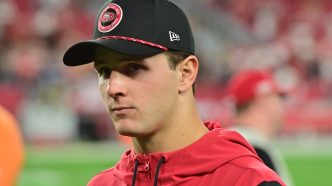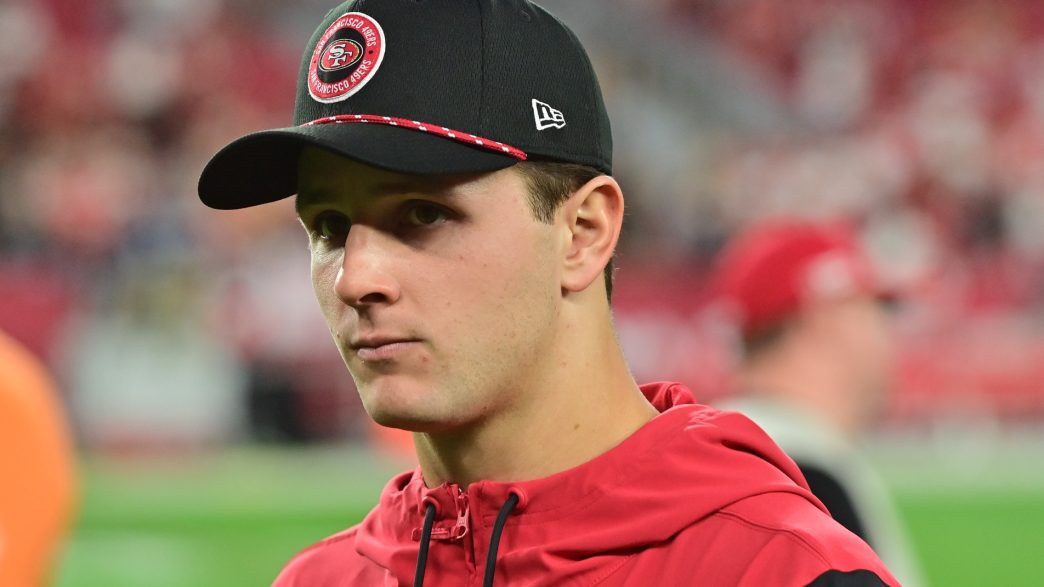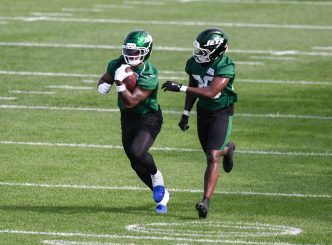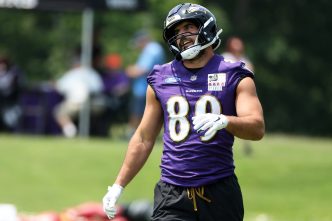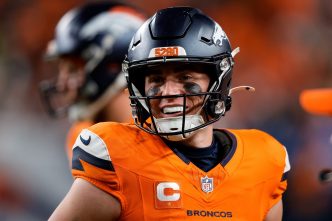Did the San Francisco 49ers just step into a financial quagmire by signing Brock Purdy to a whopping five-year, $265 million extension, with $181 million guaranteed? That’s a looming question among fans and analysts who are keenly observing the salary cap landscape and its impact on the franchise’s future.
On one side of the debate, the argument is compelling. Frank Schwab highlights the crux of the issue: while Purdy’s rise has been nothing short of a feel-good narrative, can he really lead the 49ers to a Super Bowl with a hefty price tag of $53 million per year hanging over the organization? Historically, San Francisco’s success in their most recent Super Bowl run was fueled by having a quarterback on a rookie deal, allowing them the financial flexibility to assemble a powerhouse roster laden with elite talent.
Schwab’s conviction is hard to ignore. He believes the 49ers needed to capitalize on Purdy’s rookie contract—not merely for the next few seasons, but as a strategic advantage for the future. With Kyle Shanahan at the helm, suggesting he could replicate Purdy’s success with another up-and-coming talent seems plausible; after all, Shanahan’s track record with quarterbacks speaks volumes. In his eyes, committing top-tier money to a player he sees as a mid-tier quarterback could severely restrict the 49ers’ ability to construct a championship-caliber team.
There’s also historical context to consider. Schwab reminds us that Jimmy Garoppolo came close to clinching a title, but it was a defensive breakdown that ultimately doomed the team. Imagine what could have been had the 49ers secured a more favorable financial position to keep their defensive core intact while potentially bringing in supplementary offensive talent. The ramifications of overspending on Purdy could redefine what the team can accomplish in the coming seasons.
Conversely, Charles Robinson offers a counter-narrative, arguing that the deal represents a shrewd move within the current quarterback market. He points out that Purdy’s contract isn’t resetting the market—it falls in line with the deals of other mid-tier quarterbacks, like Jared Goff. His perspective sheds light on the limited options the 49ers faced: either extend Purdy or plunge into uncertain waters with a draft lacking elite quarterback talent for the foreseeable future.
Robinson argues against the notion of a full-blown rebuild, asserting that secure, albeit not transcendent quarterback play is essential for a team eyeing contention. It’s a strategic decision grounded in practicality rather than idealism. If the 49ers are to sustain their window of opportunity, extending Purdy, given the current landscape, may seem like a necessary risk.
Yet, this brings us back to the heart of the dilemma: Is Purdy truly a quarterback that warrants such significant investment? The ongoing debate underscores the risk of inflating contracts, raising questions about the long-term sustainability of the franchise’s ambitions. If Purdy doesn’t elevate his game significantly, the 49ers could find themselves hamstrung by a hefty contract that limits their flexibility to address other roster needs.
Ultimately, as the dust settles on this monumental contract extension, the clock is ticking. The 49ers must gauge the impact of this decision as it unfolds in real-time. Will this commitment ultimately serve as a stepping stone to greatness, or will it ensnare the franchise in a precarious financial maze? Only time will tell, but one thing is clear: the pressure is on Purdy to blossom into the elite quarterback the 49ers hope he can be, or this bold gamble could come back to haunt them.

